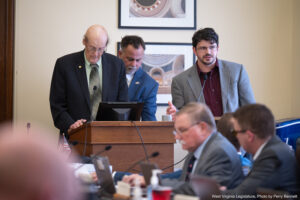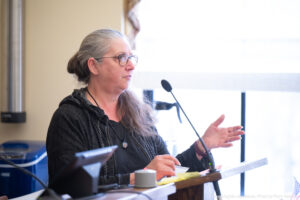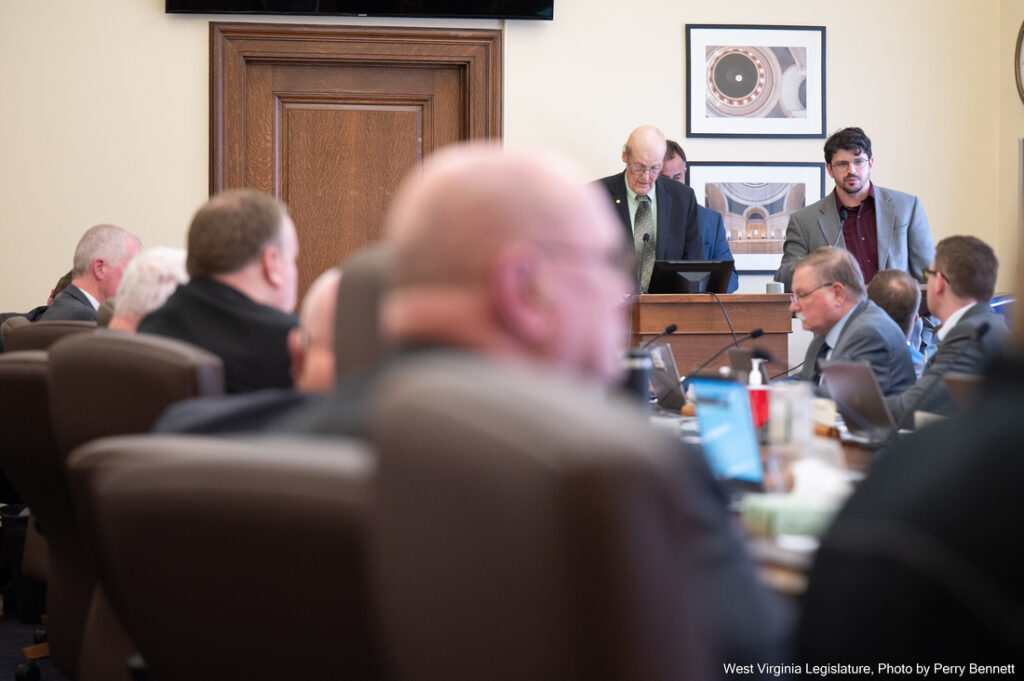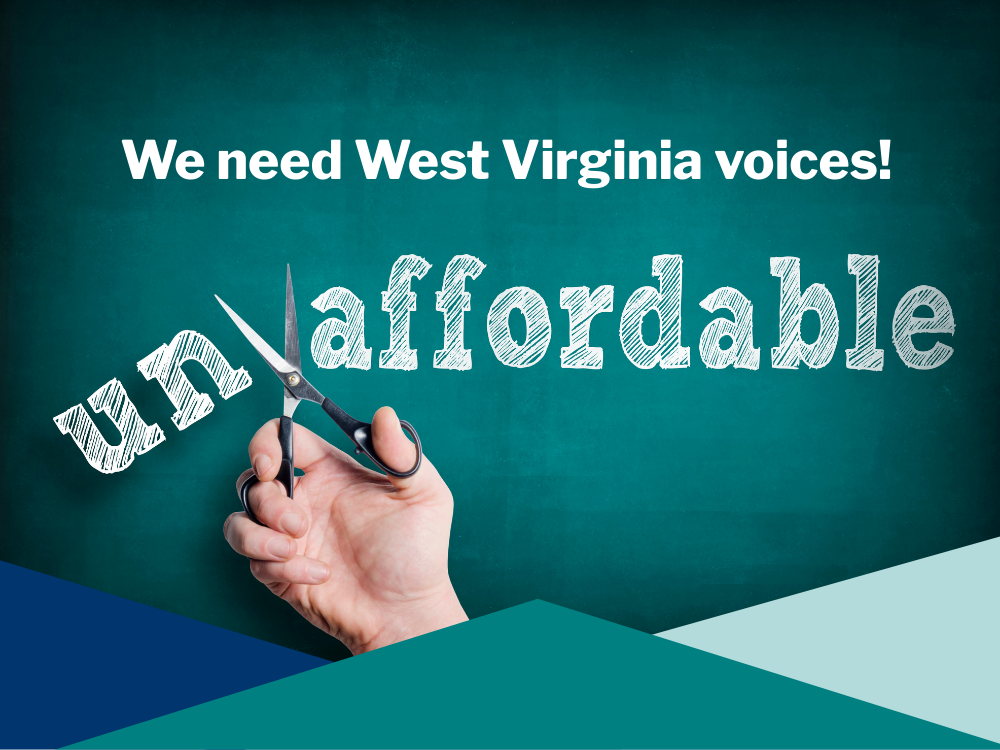- Like
- Digg
- Del
- Tumblr
- VKontakte
- Buffer
- Love This
- Odnoklassniki
- Meneame
- Blogger
- Amazon
- Yahoo Mail
- Gmail
- AOL
- Newsvine
- HackerNews
- Evernote
- MySpace
- Mail.ru
- Viadeo
- Line
- Comments
- Yummly
- SMS
- Viber
- Telegram
- Subscribe
- Skype
- Facebook Messenger
- Kakao
- LiveJournal
- Yammer
- Edgar
- Fintel
- Mix
- Instapaper
- Copy Link
Public Shut Out While Lawmakers Push Toxic Deregulation
By Tyler Cannon, WV Climate Alliance Coordinator
During the 2025 legislative session, efforts to fully deregulate aboveground storage tanks continued for the 10th consecutive year. This time, the elimination of public hearings has further silenced public input. The erosion of democracy is unacceptable, and we must make that clear to our representatives.

On April 7, the House Energy & Public Works Committee discussed Senate Bill 592, which proposed to remove over 1,000 oil, gas, and coal tanks from regulation. Many of these tanks sit dangerously close to drinking water supplies, including those storing MCHM, the same chemical responsible for the 2014 water crisis that left 300,000 West Virginians without water for weeks.
I stepped forward to speak during the expert witness portion with the process for public participation unclear. Uncertain of the rules, lawmakers briefly conferred before allowing me to proceed, stating, “How do we want to handle this?” Industry representatives from DOW Chemical, Pillar Energy, and the WV Department of Environmental Protection (WV DEP) had testified before me. Following their lead, I used direct examples to highlight the dangers of deregulation.
First, I emphasized that deregulation harms our communities’ most vulnerable members. During the 2014 water crisis, the media overlooked a critical group—incarcerated people at South Central Regional Jail. At the time, the jail held 497 inmates, 50% over capacity. Already in crisis, the facility became a potential death trap when the water supply became contaminated. The state’s regulatory negligence turned an existing humanitarian issue into a dire emergency.
Next, I shared a recent incident from March 2024. My daughter’s family home sits near a massive compressor station, pipelines, and fracked gas wells. A valve failure at the station ignited the condensate tanks, leading to months of frustrating negotiations with the operator and WV DEP to ensure site cleanup. Despite clear risks, officials returned the tanks to service without inspection. The nearby stream flows through a wetland before entering the “Zone of Critical Concern (ZCC),” where contamination can reach a public drinking water intake in under five hours. Because the tanks are outside the ZCC, they are no longer regulated. This negligence endangers entire communities and has caused irreparable damage to a once-productive farm.

Despite industry lobbyists and state representatives speaking for as long or longer, some still viewed my testimony as a filibuster. In reality, lawmakers had to hear about the negative impacts of deregulation and failures of current regulation for only 20-minutes before they left the room to attend the House floor session, with an obligation to return to the discussion at hand afterward.
Throughout my testimony, lawmakers visibly bristled. Some muttered in frustration. They viewed my presence as an abuse of the committee process, yet this situation only arose because they stripped away formal channels for public input. I made it abundantly clear that I would not be speaking in committee if there was a public hearing process. Lawmakers are deliberately excluding the public from decisions that impact their lives.
We refuse to accept this suppression. We will continue showing up, speaking out, and demanding accountability from those in power.
While SB 592 ultimately failed to pass this session, we fully expect it to return next year—just as it has, year after year.



